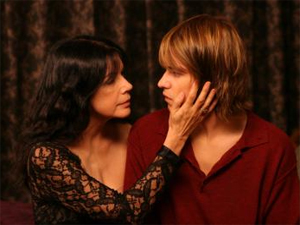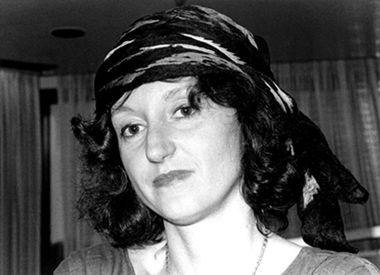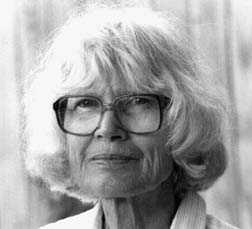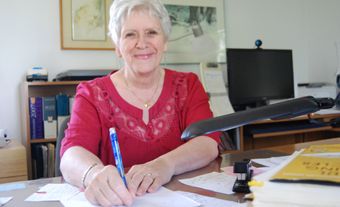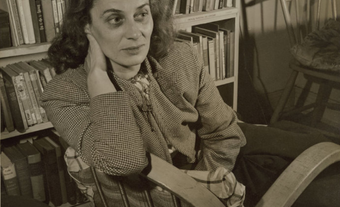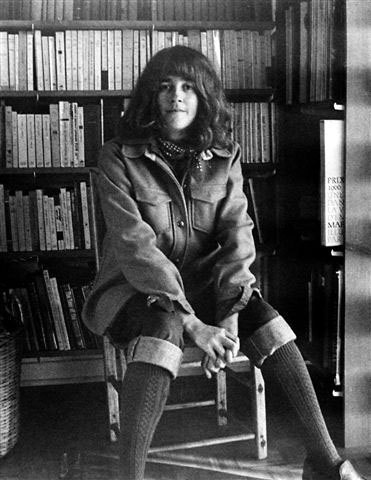
Childhood and Education
The eldest in a family of five children, Marie-Claire Blais grew up in the working-class neighbourhood of Limoilou, in Quebec City, and was taught by Catholic nuns. Her parents’ financial situation forced Blais to quit school when she was barely 15 years old and enter the workforce. She rented her own apartment and worked in stores and factories while dedicating all her free time to her writing. After a stay in Montreal, she took a night course in creative writing at Université Laval, where her talent was quickly noticed by Jeanne Lapointe, professor of literature, and Father Georges-Henri Lévesque, then vice-president of the Canada Council for the Arts. Lévesque offered Blais his support as she was publishing her first novel and helped the young author obtain a writing scholarship that allowed her to live and work in Paris for a year.
La belle bête (1959)
Blais published La belle bête in 1959 when she was only 20 years old. The novel was generally well received by critics, but was denounced by some who found it immoral. The book contained violence and raw language completely unheard of at the time in Quebec, and its plot left an indelible mark on the imagination of its many readers. The story of the twisted relationship between an ugly young woman and her simple-minded but exceptionally beautiful younger brother elicits a panoply of emotions, each one stronger than the last. Critics alluded to a sordid savagery in the novel that shocked readers, given the author’s young age. La belle bête was soon published in France in 1960 and translated into English (under the title Mad Shadows), Spanish and Italian.
The influential American critic Edmund Wilson became aware of this original work and mentioned Blais in his book O Canada, An American’s Notes on Canadian Culture (1965): “[She] is a true ‘phenomenon’; she may possibly be a genius.” With the support of Wilson, Blais succeeded in landing two fellowships from the John Simon Guggenheim Memorial Foundation.
A Prolific Author
A second novel, entitled Tête blanche (1960), quickly followed La belle bête. In 1965, Blais published the highly acclaimed novel Une saison dans la vie d’Emmanuel, translated into more than a dozen languages. She was awarded the prestigious French Prix Médicis as well as the Prix France-Québec for this work. The novel has been discussed in more than 2,000 books, theses, articles, critiques and interviews, and the multiple interpretations of it by literary critics are a tribute to the book’s rich complexity.

Blais remained very active in the literary world, with numerous publications in subsequent years. She received her first Governor General’s Literary Award in 1968 for Manuscrits de Pauline Archange, a troubling story of childhood, cruelty and violation, in which a myriad of characters take turns in the roles of victim and persecutor. Le sourd dans la ville — a harrowing story told through the characters’ internal monologue — also earned Blais a Governor General’s Literary Award in 1979. The themes of violence and a sombre future also figure in Visions d’Anna, which was published in 1982 and won the Académie française’s Prix Anaïs Ségalas.
In January 2018, Blais published Une réunion près de la mer, the last in a series of novels entitled Soifs on which she had worked for the past 20 years. This series consists of 10 novels that introduce a hundred characters, often marginalized persons with rough lives who represent the complexity of social fabric of the United States. The characters developed in each book all reunite in the last work for the series’ grand finale.
Adaptations
Several of Blais’ works have been adapted into other formats. Notably, the novel La belle bête was turned into a ballet in 1977 by the National Ballet of Canada and staged in 1987 for the company’s anniversary. In 2006, the book was brought to the big screen by director Karim Hussain; the film version starred, among others, Carole Laure and Caroline Dhavernas. Several of Blais’ other novels have also been adapted for film, including Une saison dans la vie d’Emmanuel (1972), directed by Claude Weisz, which won the Prix de la Quinzaine des jeunes réalisateurs at the Cannes Film Festival; Le sourd dans la ville (1987), directed by Mireille Dansereau, which won a prize at the Venice Film Festival; and L'océan (1971), adapted into a television movie by Jean Faucher.

 Share on Facebook
Share on Facebook Share on X
Share on X Share by Email
Share by Email Share on Google Classroom
Share on Google Classroom




